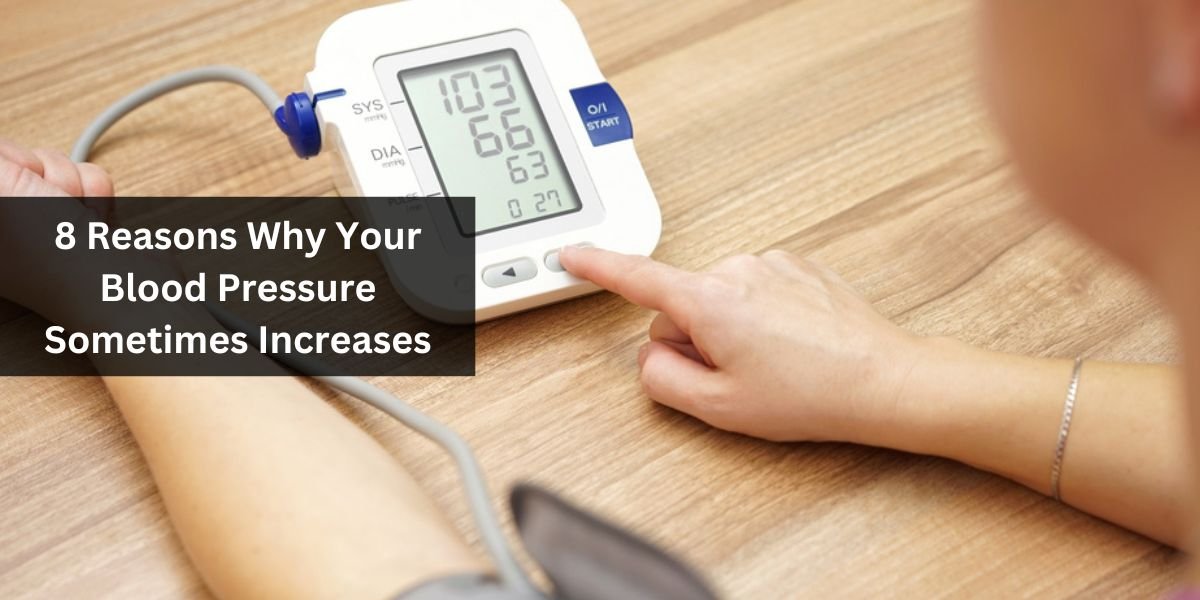Hey there, health enthusiasts! We’re diving into the intriguing world of blood pressure fluctuations. Ever wondered why your blood pressure plays hide and seek? Well, you’re not alone. In this article, we’ll unravel the mystery behind the occasional spikes in blood pressure. Buckle up as we explore the 8 common reasons causing these ups and downs.
The Basics of Blood Pressure
Understanding blood pressure is like decoding your body’s secret language. It’s measured in millimeters of mercury (mm Hg) and consists of two readings: systolic (the pressure when your heart beats) and diastolic (the pressure when your heart rests between beats). Normal blood pressure is generally around 120/80 mm Hg.
Stress – The Silent Culprit
Stress, the modern-day villain, can wreak havoc on your blood pressure. When stress hormones surge, your heart rate increases, causing a temporary spike. Chronic stress can contribute to long-term hypertension, so it’s crucial to find effective stress-busting techniques like meditation, deep breathing, or a good laugh.
Poor Dietary Choices
Ever felt your blood pressure rise after a salty feast? High sodium intake is a notorious culprit. Processed foods, fast food, and excessive salt can lead to water retention, increasing blood volume and, consequently, blood pressure. Opt for a balanced diet rich in fruits, vegetables, and whole grains to keep your blood pressure in check.
Lack of Physical Activity
Your body is designed to move, and a sedentary lifestyle can lead to weight gain and higher blood pressure. Regular exercise not only helps maintain a healthy weight but also strengthens your heart. Aim for at least 150 minutes of moderate-intensity exercise per week to keep your blood pressure in the green zone.
Caffeine Overload
Coffee lovers, beware! While moderate caffeine consumption is generally safe, excessive intake can lead to a temporary spike in blood pressure. Keep your caffeine intake in check, and if you’re sensitive to it, consider opting for decaf or herbal teas.
Sleep Deprivation
Your body’s repair shop operates during sleep, and when you skimp on it, your blood pressure pays the price. Chronic sleep deprivation can lead to higher blood pressure levels. Prioritize quality sleep by maintaining a consistent sleep schedule, creating a relaxing bedtime routine, and ensuring a comfortable sleep environment.
Smoking – A Pressure-Packed Habit
The dangers of smoking extend beyond lung health. Nicotine in cigarettes causes blood vessels to narrow, leading to a temporary increase in blood pressure. Quitting smoking not only benefits your cardiovascular health but has numerous other positive effects on your overall well-being.
Alcohol’s Double-Edged Sword
While a glass of wine might seem like a good way to unwind, excessive alcohol consumption can raise your blood pressure. Moderate drinking is key, with one drink per day for women and up to two drinks per day for men considered acceptable. Anything beyond that might tip the scales.
Conclusion:
In the complex dance of life, your blood pressure is a crucial partner. Understanding the reasons behind occasional spikes empowers you to take control. From managing stress to adopting a heart-healthy lifestyle, small changes can make a significant difference.
Frequently Asked Questions (FAQs):
Can stress cause long-term high blood pressure?
Yes, chronic stress can contribute to hypertension over time. Finding effective stress management techniques is crucial for maintaining optimal blood pressure.
How does exercise impact blood pressure?
Regular exercise helps maintain a healthy weight, strengthens the heart, and promotes overall cardiovascular health, thus contributing to optimal blood pressure levels.
Is caffeine bad for blood pressure?
While moderate caffeine consumption is generally safe, excessive intake can lead to temporary spikes in blood pressure. It’s essential to monitor and regulate your caffeine intake.
Can quitting smoking lower blood pressure?
Yes, quitting smoking has numerous health benefits, including a positive impact on blood pressure. Nicotine in cigarettes can cause blood vessels to narrow, contributing to increased blood pressure.
